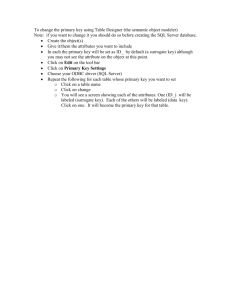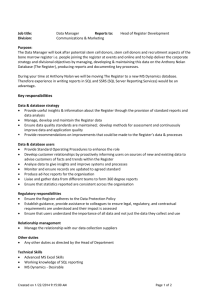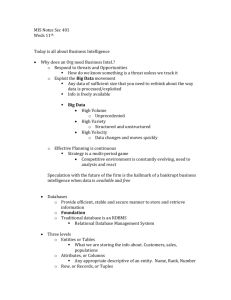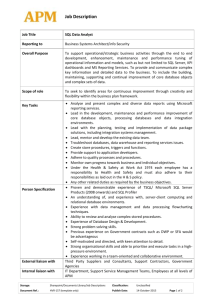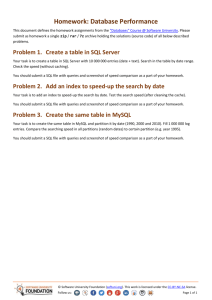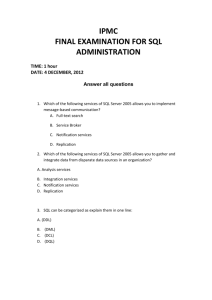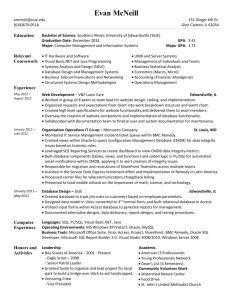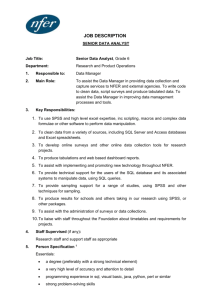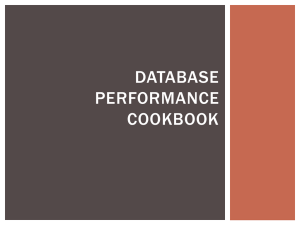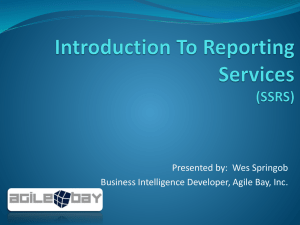SQL Server DBA Guide: Roles, Environment, and Best Practices
advertisement
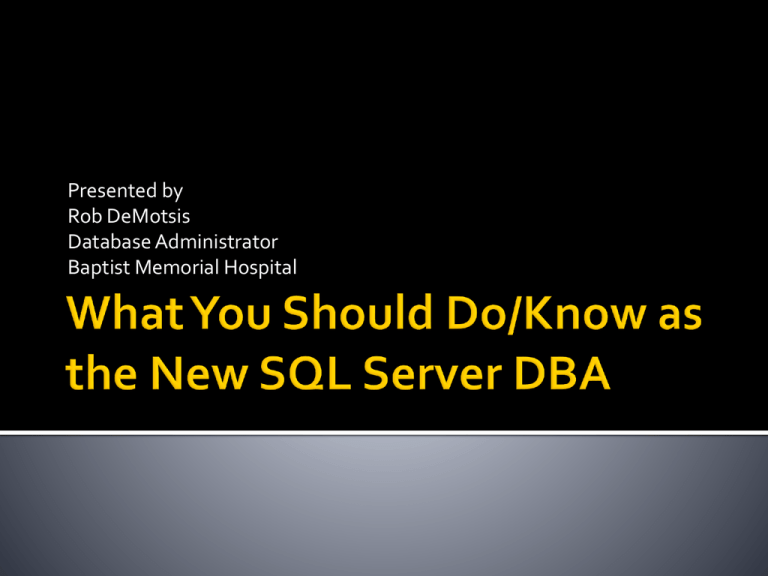
Presented by Rob DeMotsis Database Administrator Baptist Memorial Hospital Knowing Your Role Understanding your Environment Continued Learning Quick Wins Making Friends Document, Document, Document What is a DBA anyway? Administrative/Operational Development/Logical Architect/Data Modeler Data Warehouse/BI OLAP Application Administrative/Operational Maintains the server Backups and Restores Security Replication High Availability Capacity planning Monitors performance and scheduled jobs Things that concern the actual server software Development/Logical Builds queries Writes stored procedures, triggers, functions, etc Equivalent to the programmer or developer Sometimes this person is also involved in the Report Writing (i.e. SSRS or Crystal Reports) Architect/Data Modeler Design schemas Build database objects (i.e. tables, FKs, PKs, etc.) Builds a structure for applications that meet the business needs Design is usually used by developers and development DBAs to implement the actual application Data Warehouse/BI Responsible for merging data from multiple sources into a data warehouse. May have to design warehouse, but cleans, standardizes, and scrubs data before loading. In SQL Server, this DBA would use DTS/SSIS heavily. OLAP Builds multi-dimensional cubes for decision support or OLAP systems The primary language in SQL Server is MDX, not SQL here Application Application DBAs straddle the fence between the DBMS and the application software and are responsible for ensuring that the application is fully optimized for the database and vice versa. They usually manage all the application components that interact with the database and carry out activities such as application installation and patching, application upgrades, database cloning, building and running data cleanup routines, data load process management, etc. Apps Servers - SQL Server Instances/Databases/OSes Workplace Team Applications What applications are being used within your business that have databases and who owns them ▪ ▪ ▪ ▪ Groups or individuals may own these apps These will be the contacts when support calls come in What is the SLA(Service Level Agreement) and Escalation procedures Maintenance Schedules Is there any documentation available to better understand what is installed and being used Is SharePoint or another collaborative app available to share these documents A good and somewhat thorough discovery of these apps would help you to understand where there might be gaps in support for your database environment • Servers - SQL Server Instances/Databases/Oses Is there a list of servers in your organization ▪ (If not, make one) ▪ ▪ ▪ ▪ ▪ Physical and Virtual Data Center Racks Server versions with service packs and patch levels SQL Server versions with service packs and patch levels Workplace Work hours Some places are flexible because of the kind of work we do. Just make sure you get your 40/week in. Policies and Procedures This one is very important. Familiarize yourself with these Workplace Most importantly Where is the coffee and the restrooms Learn from your teammates As you learn something new, share it with your team Have team based lunch and learn sessions Rotate the role of teacher to each teammate There are a multitude of SQL Server forums and meetings such as this one SQL RAP w/Microsoft Set up a CMS (Central Management Server) Use PBM (Policy Based Management) Microsoft Assessment and Planning Toolkit (MAP) Monitor SQL Server jobs every morning Check your backups!!!!! Test them!!!! Security Audit Get to know your teammates Have lunch with them and find out who you are working with After all, you will be spending as much time with them on a daily basis as you do your own family There is no excuse for not documenting Find time to do so Make this a mandatory part of your day Schedule it into your calendar and block off 30 minutes to an hour a day to do this Use SharePoint or just a network share to store useful scripts, documents, and etc. Let’s Talk about this
